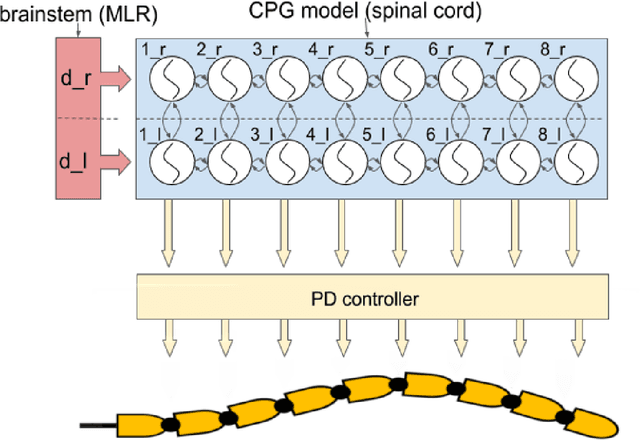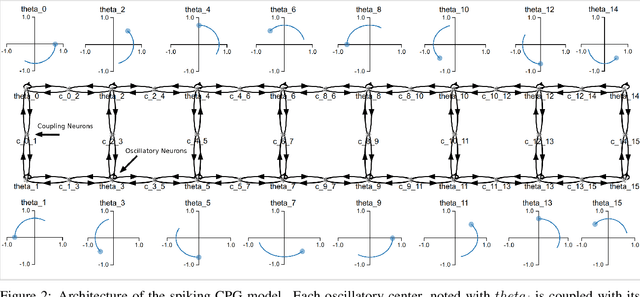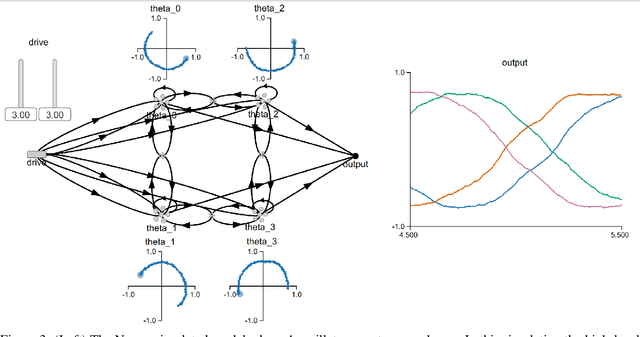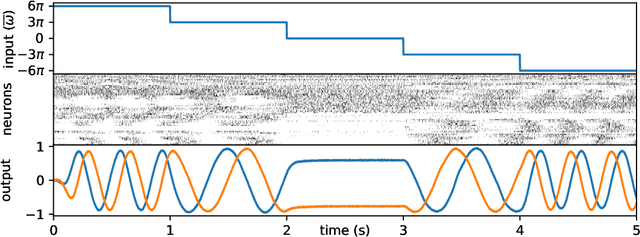A Spiking Central Pattern Generator for the control of a simulated lamprey robot running on SpiNNaker and Loihi neuromorphic boards
Paper and Code
Jan 18, 2021



Central Pattern Generators (CPGs) models have been long used to investigate both the neural mechanisms that underlie animal locomotion as well as a tool for robotic research. In this work we propose a spiking CPG neural network and its implementation on neuromorphic hardware as a means to control a simulated lamprey model. To construct our CPG model, we employ the naturally emerging dynamical systems that arise through the use of recurrent neural populations in the Neural Engineering Framework (NEF). We define the mathematical formulation behind our model, which consists of a system of coupled abstract oscillators modulated by high-level signals, capable of producing a variety of output gaits. We show that with this mathematical formulation of the Central Pattern Generator model, the model can be turned into a Spiking Neural Network (SNN) that can be easily simulated with Nengo, an SNN simulator. The spiking CPG model is then used to produce the swimming gaits of a simulated lamprey robot model in various scenarios. We show that by modifying the input to the network, which can be provided by sensory information, the robot can be controlled dynamically in direction and pace. The proposed methodology can be generalized to other types of CPGs suitable for both engineering applications and scientific research. We test our system on two neuromorphic platforms, SpiNNaker and Loihi. Finally, we show that this category of spiking algorithms shows a promising potential to exploit the theoretical advantages of neuromorphic hardware in terms of energy efficiency and computational speed.
 Add to Chrome
Add to Chrome Add to Firefox
Add to Firefox Add to Edge
Add to Edge